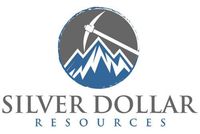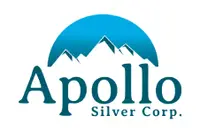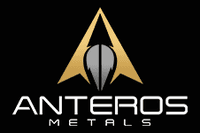Bunker Hill Mining Announces Filing of NI 43-101 Technical Report
Bunker Hill Mining (CSE:BNKR) is pleased to announce that it has filed on SEDAR a National Instrument 43-101 (“NI 43-101”) Technical Report on its Bunker Hill Property located in Idaho’s Coeur d’Alene Mining District.
Bunker Hill Mining (CSE:BNKR) is pleased to announce that it has filed on SEDAR a National Instrument 43-101 (“NI 43-101”) Technical Report on its Bunker Hill Property located in Idaho’s Coeur d’Alene Mining District.
The Technical Report includes:
- A 10-12 million ton Exploration Target comprised of the Quill/Newgard Zones. For comparison purposes, the historical resource estimate for the entire Bunker Hill Property is 9.1 million tons grading 5.08% Zn, 2.35% Pb and 40 g/t Ag (or 1.17 ounces per ton) (See disclosure below regarding historical resource estimate, in section titled “Exploration Target”);
- Results of Independent Sampling showing grades for the Quill/Newgard Zones (Levels 9 & 10) averaging 20% Zn, 14% Pb and 247 g/t Ag (or 7.20 ounces per ton), which exceed average historic grades; and
- a Plan for a US$7.7 million Exploration Program to upgrade the historic resources to an NI 43-101 Indicated Mineral Resource.
Bruce Reid, CEO of Bunker Hill, stated: “This report highlights the significant exploration potential of the Bunker Hill Mine. The Exploration Target covers less than 10% of the overall footprint of the Property, and the independent sampling grades from Levels 9 and 10 illustrate the opportunity to exceed historic mined grades using modern grade control methods.”
The Technical Report is titled, “Technical Report on the Bunker Hill Zinc-Lead-Silver Property, Coeur D’Alene Mining District, Shoshone County, Idaho, USA” with an effective date of July 6, 2018, and was prepared by David Burga, P.Geo., Alfred S. Hayden, P.Eng., D. Grant Feasby, P. Eng., Richard H. Sutcliffe, PhD, P.Geo. and Eugene Puritch, P.Eng. FEC, CET of P&E Mining Consultants Inc.
Exploration Target
Exploration data developed by previous property operators, including 1,574 historical drill hole assay intervals and 340 stope muck samples, was utilized by a 3D Leapfrog® vein modelling tool to outline an Exploration Target of 10 to 12 million tons grading a combined Pb plus Zn grade of 6% to 8% (excluding silver content). The potential tonnages and grades are conceptual in nature and are based on previous drill results that defined the approximate length, thickness, depth and grade of a portion of the historic resource estimate. There has been insufficient exploration to define a current Mineral Resource Estimate and the Company cautions that it is uncertain that further exploration will result in the delineation of a current Mineral Resource Estimate. The Leapfrog model is a conceptual mineralized envelope and is not intended to be a Mineral Resource Estimate. No grade capping, compositing or geostatistics of any kind have been applied.
The historical resource estimate is based on the most recent semi-annual estimate dated January 1, 1991, prepared by Mr. Bob Meyer, Chief Geologist at the Bunker Hill Mine, during the last months of production at the mine. The 1991 historic resource estimate has not been reduced by approximately 30,000 tons of production occurring between January 1 and 19, 1991. The historic resource includes proven, probable, possible and drill indicated reserves which are not consistent with current CIM definitions for “Mineral Reserves”. Historic resources were calculated by the following method: Volumes (and subsequent tonnage) were calculated by vertical projection from (as per definitions outlined in Section 6.4 of the technical report) level plans of mined out areas. Grades were calculated by averaging the grades on the stope assay map from which the projections were made. Bunker Hill has reviewed the available data, including drill logs and additional supporting information sources, and believes that the historical resource calculation was conducted in a professional and competent manner. Bunker Hill has not undertaken any data verification of the historical data upon which the historic resource estimate is based. The historical resource estimate is the most recent estimate currently available regarding Bunker Hill. A Qualified Person has not completed sufficient work to classify the historical resource estimate as a current Mineral Resource or Mineral Reserve. The Company is not treating the historical estimate as current Mineral Resources or Reserves. There can be no assurance that any of the historical mineral resource estimate, in whole or in part, will ever become economically viable. Bunker Hill believes these historical results provide an indication of the potential of the properties and are relevant to ongoing exploration. The section below, titled “Planned Exploration Program” indicates, in the Technical Report author’s opinion, what work is required to upgrade or verify the historical resource estimate to a current Mineral Resource Estimate
The Exploration Target, encompassing the Quill and Newgard Zones (see Figure 1 below), only represents a portion of the area covered by the overall historical resource estimate for the Bunker Hill of 9.1 million tons grading 5.08% Zn, 2.35% Pb and 40 g/t Ag [or 1.17 ounces per ton].
To view Figure 1: Conceptional Wireframe Encompassing the Quill and Newgard Zones, please visit the following link: https://www.globenewswire.com/NewsRoom/AttachmentNg/b70ca920-13c9-4ea8-b320-0b547c0911a7
Independent Sampling
A Qualified Person contracted by the author of the Technical Report, P&E Mining Consultants Inc., took 12 grab samples for independent assay analysis, the results of which were tabulated in the following table in the Technical Report:
| Table 12.2 P&E Verification Samples Comparison Results | |||||||
| P&E Assay Results | Bunker Hill Mine Working Value | ||||||
| P&E Sample Number | Bunker Hill Working Area | Pb % | Zn % | Ag g/t | Pb % | Zn % | Ag g/t |
| E5389510 | 051-53-71 | 2.17 | 2.73 | 26.8 | 6.0%* | 21.77 | |
| E5389511 | 051-53-72 | 2.77 | 1.96 | 21.8 | 6.0%* | 21.77 | |
| E5389512 | 051-53-73 | 2.24 | 1.01 | 23.2 | 6.0%* | 21.77 | |
| E5389513 | 051-53-73 | 1.17 | 2.06 | 13.5 | 6.0%* | 21.77 | |
| E5389514 | 10-35-21 | 25 | 25.2 | 475 | 2.92 | 7.32 | 60.03 |
| E5389515 | 10-35-21 | 11.6 | 20.7 | 187 | 2.92 | 7.32 | 60.03 |
| E5389516 | 10-35-21 | 8.52 | 24.5 | 141 | 2.92 | 7.32 | 60.03 |
| E5389517 | 9-35-21 | 4.46 | 10.7 | 70.8 | 1.15 | 3.78 | 14.93 |
| E5389518 | 9-35-21 | 15.3 | 15.2 | 226 | 1.15 | 3.78 | 14.93 |
| E5389519 | 9-35-21 | 21.9 | 24 | 388 | 1.15 | 3.78 | 14.93 |
| E5389520 | Surface Stockpile Sample | 4.43 | 12 | 50.6 | N/A | N/A | N/A |
| E5389521 | Surface Stockpile Sample | 5.45 | 11.5 | 63.3 | N/A | N/A | N/A |
| * Based on the overall average of the UTZ samples and the process plant results when running UTZ mineralization, the overall grades for the UTZ zone were estimated to run a combined grade of 6.0%. | |||||||
The 051, 10, and 9 codes in the second column in the table above correspond to Level numbers as per Figure 1. The results for Levels 9 and 10, albeit from a very small sample size, indicate grades much higher than average values from historical stope assay maps derived from production stope (car) sampling upon which the historical resource estimate was based. The results for Level 5 are in line with historic stope assay map values.
Planned Exploration Program
The Technical Report proposes a US$7.7 million exploration program which would utilize controlled directional drilling from surface. This program would drill holes on 100 ft. centres on two fences down plunge over the full length of the Leapfrog wireframe encompassing the Exploration Target estimated 10-12 million tons. It is of the opinion of the Technical Report author that this drill hole spacing would be of sufficient density to calculate an Indicated Mineral Resource Estimate.
Qualified Person
Peter Karelse, PGeo. and Eugene Puritch, P.Eng are the Qualified Persons under NI 43-101 who has reviewed and approved the technical information contained in this document.
About Bunker Hill Mining Corp.
Bunker Hill Mining Corp. has an option to acquire 100% of the Bunker Hill Mine. The Bunker Hill Mine was the largest producing mine in the Coeur D’Alene zinc, lead and silver mining district in northern Idaho. Historically, the mine produced over 35M tons grading on average 8.76% lead, 3.67% zinc, and 155 g/t (4.52 ounces per ton) silver (Bunker Hill Mines Annual Report 1980). Information about the Company is available on its website, www.bunkerhillmining.com, or in the SEDAR and EDGAR databases.
For additional information contact:
| Bruce Reid, Chief Executive Officer (647) 500-4495 br@bunkerhillmining.com | Nicholas Konkin, Marketing & Communications (416) 567-9087 nk@bunkerhillmining.com |
Cautionary Statements
Certain statements in this news release are forward-looking and involve a number of risks and uncertainties. Such forward-looking statements are within the meaning of that term in Section 27A of the Securities Act of 1933, as amended, and Section 21E of the Securities Exchange Act of 1934, as amended, as well as within the meaning of the phrase ‘forward-looking information’ in the Canadian Securities Administrators’ National Instrument 51-102 – Continuous Disclosure Obligations. The forward looking statements made herein are based on information currently available to the Company and the Company provides no assurance that actual results will meet management’s expectations or assumptions with respect to, among other things, the ability of the Company to successfully complete the acquisition of the Bunker Hill Mine Complex on the terms as announced or other satisfactory terms or at all, and fund the initial payments for which the Company does not have funds at this time, the Company’s present and future financial condition, the Company’s ability to secure financing, and the state of financial markets. Forward-looking statements include estimates and statements that describe the Company’s future plans, objectives or goals, including words to the effect that the Company or management expects a stated condition or result to occur. Forward-looking statements may be identified by such terms as “believes”, “anticipates”, “expects”, “estimates”, “may”, “could”, “would”, “will”, or “plan”, and may include statements regarding, among other things, the terms of the Bunker Hill Mine Complex acquisition and funding of the acquisition. Since forward-looking statements are based on assumptions and address future events and conditions, by their very nature they involve inherent risks and uncertainties. Actual results relating to, among other things, results of exploration, project development, and the Company’s financial condition and prospects, could differ materially from those currently anticipated in such statements for many reasons such as: the inability of the Company to successfully acquire the Bunker Hill Mine Complex on the terms as announced or other satisfactory terms or at all, and fund the payments for which the Company does not have funds at this time; the inability of the Company to budget and manage its liquidity in light of the failure to obtain additional financing; the inability of the Company to develop or sustain an active public market for its securities; development of changes in general economic conditions and conditions in the financial markets; changes in demand and prices for precious metals; litigation, legislative, environmental and other judicial, regulatory, political and competitive developments; operational difficulties encountered in connection with the activities of the Company; and other matters discussed in this news release. This list is not exhaustive of the factors that may affect any of the Company’s forward-looking statements. These and other factors made in public disclosures and filings by the Company should be considered carefully and readers should not place undue reliance on the Company’s forward-looking statements. The Company does not undertake to update any forward-looking statement that may be made from time to time by the Company or on its behalf, except in accordance with applicable securities laws.
Cautionary Note to US Investors
NI 43-101 is a rule developed by the Canadian Securities Administrators which establishes standards for all public disclosure an issuer makes of scientific and technical information concerning mineral projects. Unless otherwise indicated, all resource estimates contained in or incorporated by reference in this press release have been prepared in accordance with NI 43-101 and the guidelines set out in the Canadian Institute of Mining, Metallurgy and Petroleum (the “CIM”) Standards on Mineral Resource and Mineral Reserves, adopted by the CIM Council on November 14, 2004 (the “CIM Standards”) as they may be amended from time to time by the CIM.
United States investors are cautioned that the requirements and terminology of NI 43-101 and the CIM Standards differ significantly from the requirements and terminology of the SEC set forth in the SEC’s Industry Guide 7 (“SEC Industry Guide 7”). Accordingly, the Company’s disclosures regarding mineralization may not be comparable to similar information disclosed by companies subject to SEC Industry Guide 7. Without limiting the foregoing, while the terms “mineral resources”, “inferred mineral resources”, “indicated mineral resources” and “measured mineral resources” are recognized and required by NI 43-101 and the CIM Standards, they are not recognized by the SEC and are not permitted to be used in documents filed with the SEC by companies subject to SEC Industry Guide 7. Mineral resources which are not mineral reserves do not have demonstrated economic viability, and US investors are cautioned not to assume that all or any part of a mineral resource will ever be converted into reserves. Further, inferred resources have a great amount of uncertainty as to their existence and as to whether they can be mined legally or economically. It cannot be assumed that all or any part of the inferred resources will ever be upgraded to a higher resource category. Under Canadian rules, estimates of inferred mineral resources may not form the basis of a feasibility study or prefeasibility study, except in rare cases. The SEC normally only permits issuers to report mineralization that does not constitute SEC Industry Guide 7 compliant “reserves” as in-place tonnage and grade without reference to unit amounts. The term “contained ounces” is not permitted under the rules of SEC Industry Guide 7. In addition, the NI 43-101 and CIM Standards definition of a “reserve” differs from the definition in SEC Industry Guide 7. In SEC Industry Guide 7, a mineral reserve is defined as a part of a mineral deposit which could be economically and legally extracted or produced at the time the mineral reserve determination is made, and a “final” or “bankable” feasibility study is required to report reserves, the three-year historical price is used in any reserve or cash flow analysis of designated reserves and the primary environmental analysis or report must be filed with the appropriate governmental authority. The mine economics presented herein and derived from the PEA are preliminary in nature and may not be realized. The PEA is not a feasibility study. U.S. investors are urged to consider closely the disclosure in our latest reports and registration statements filed with the SEC. You can review and obtain copies of these filings at https://www.sec.gov/edgar.shtml. U.S. Investors are cautioned not to assume that any defined resource will ever be converted into SEC Industry Guide 7 compliant reserves.
Click here to connect with Bunker Hill Mining (CSE:BNKR) for an Investor Presentation.
Source: globenewswire.ca




